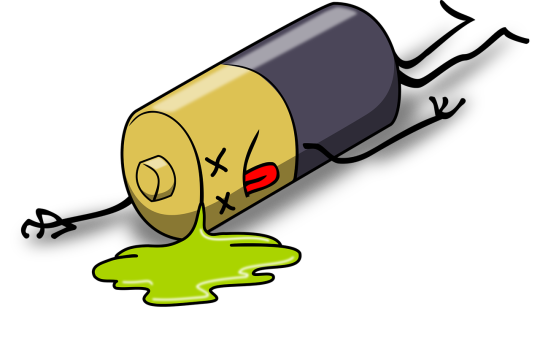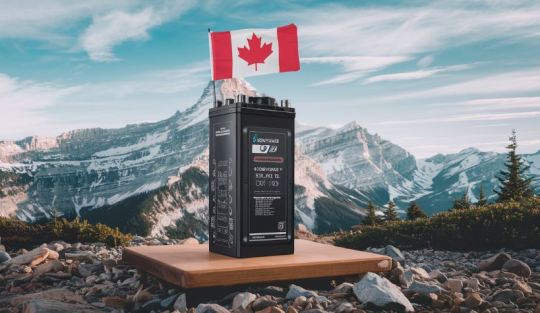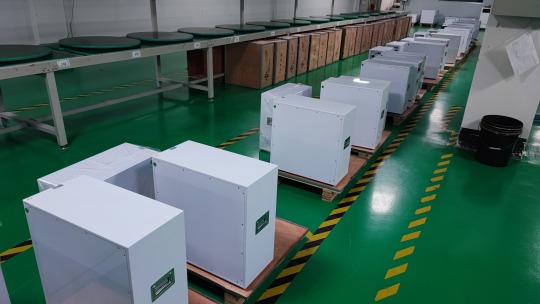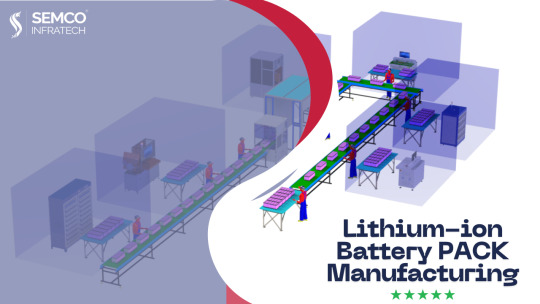#lithium battery manufacturer
Explore tagged Tumblr posts
Text

We're lithium battery manufacturer for solar storage, looking for distribuctor, installer, contractor, contact: [email protected]
#solar energy#solar companies#solar system#solar battery#solar panel#solar#solar storage#home solar system#home solar storage#lithium ion battery market trends#lithium iron phosphate battery#lithium ion batteries#lithium battery#clean energy#lithium battery manufacturer#battery modular#energia#energia solar#solar panels#solar power#solar solutions
0 notes
Text




【Easy to move, efficient power supply, your ideal power partner】 Welcome to our brand new product, an excellent 51.2V, 100AH brown battery designed to meet your various needs.
This rechargeable home battery has many impressive features. First of all, it is equipped with a wheeled design, allowing you to move easily, whether in the office, factory or outdoor workplace, you can handle it with ease. Secondly, it has an integrated inverter, which means you can provide stable power output anywhere, whether it is driving electronic equipment or starting tool equipment.
This battery is also equipped with a screen display, so that you can intuitively understand the battery power status, without complicated operations, everything becomes so simple. Finally, it is also equipped with an efficient inverter to ensure stable power output in any situation.
Our rechargeable home battery is not just a product, but also our commitment to quality and support for you. We believe that this battery will bring you great convenience and efficiency and become an indispensable part of your life. So, why not try this brown battery with inverter, wheeled design, and efficient operation? Let it provide you with more powerful power support and help you cope with various occasions. We look forward to your experience and believe that you will love this product.
#lithium home battery#green energy#ecofriendly#power supply#Emergency power supply#import and export#battery storage#battery storage manufacturers
2 notes
·
View notes
Text
Can Lithium Ion Batteries Leak?

Lithium ion batteries are highly efficient energy storage devices, and they have revolutionized industry in many ways. It is important to understand the potential risks associated with these batteries, including their propensity for leaking.
Leaking of a battery can be caused by several factors, such as overcharging or prolonged use at high temperatures.
When lithium ions escape from the cells, they may cause damage to surrounding objects or people.
The good news is that modern lithium-ion batteries are designed with safety features that help reduce the chance of leakage occurring.
These include temperature sensors that cut off charging if it reaches an unsafe level and pressure valves that act as a release mechanism should too much gas build up inside the cell.
Additionally, manufacturers typically provide warning labels on products containing lithium-ion batteries informing users about proper usage and cautioning against overcharging or exposing them to excessive heat.
By following these guidelines, the risk of leaking can be greatly reduced.
2 notes
·
View notes
Text

Solar Companies in Chennai,EPC Solar,Renewable Energy Company Chennai
#solar companies in chennai#best epc solar companies in chennai#renewable enerygy companies in chennai#renewable energy company in chennai#solar panel manufacturers in chennai#solar epc companies in chennai#solar panels#solar inverters#solar water heater#solar pumps#lithium batteries#list of solar companies in chennai#renewable energy companies in chennai#solar energy companies in chennai#top solar companies in chennai#list of solar epc companies in chennai#solar installation companies in chennai#Best Solar Companies in Chennai#No:1 Solar Companies in chennai#jss#jss renewable#Solar subsidy in chennai#National portal for solar#Central govt subsidy for solar
0 notes
Text

Top Three Wheeler Lithium Battery in India – Ruchira Battery
Ruchira Battery is a trusted name in Three Wheeler Lithium Battery India, offering high-performance, durable, and reliable energy solutions for modern three-wheelers. Our advanced lithium batteries ensure long-lasting power, superior efficiency, and seamless operations, making them the ideal choice for sustainable transportation. With a commitment to innovation and quality, Ruchira Battery delivers eco-friendly and dependable battery solutions that enhance vehicle performance and longevity. Call us today at +91 7419600281
0 notes
Text
Reliable Lithium-Ion Batteries for Electric Vehicles and E-Scooters in Canada
The demand for efficient and long-lasting battery solutions is growing rapidly as the world moves towards sustainable transportation. With advancements in technology, Electric-Vehicle-Battery Manufacturers are constantly innovating to enhance battery performance, making electric vehicles (EVs) and e-scooters more efficient, reliable, and environmentally friendly.

The Role of Lithium-Ion Batteries in Sustainable Transportation
Lithium-ion batteries have emerged as the preferred choice for electric vehicles and e-scooters due to their high energy density, longer lifespan, and fast charging capabilities. These batteries offer a reliable power source, enabling smoother rides and better efficiency. As the need for sustainable solutions increases, Lithium-Ion Battery Suppliers In Canada are working to meet the growing demand with advanced battery technology.
Why Choose High-Quality Lithium-Ion Batteries?
Investing in high-quality lithium-ion batteries ensures better performance, durability, and safety. Here are some key benefits:
Enhanced Performance: Longer battery life and faster charging times.
Eco-Friendly: Reduced carbon footprint compared to traditional fuel-powered vehicles.
Cost-Effective: Long-term savings on fuel and maintenance costs.
Safety Assurance: Advanced protection mechanisms to prevent overheating and overcharging.
E-Scooter Batteries: Powering the Urban Commute
The rising popularity of e-scooters as a convenient and eco-friendly transportation solution has increased the need for high-performance battery packs. Reliable E-scooter Portable Scooter Battery Pack Suppliers offer compact and lightweight battery solutions designed for optimal performance. These batteries are built to withstand frequent charging cycles, ensuring long-term reliability for daily commutes.
Choosing the Right Battery Supplier
When selecting a battery supplier, consider the following factors:
Battery Quality: Ensure the supplier provides certified, high-performance batteries.
Customization Options: Some suppliers offer tailored battery solutions for specific vehicle models.
Warranty and Support: A good warranty and reliable customer support ensure a hassle-free experience.
Sustainability Commitment: Look for suppliers who follow eco-friendly manufacturing processes.
The Future of Battery Technology
With continuous research and innovation, battery technology is evolving to offer better efficiency, safety, and sustainability. Companies are developing next-generation lithium-ion batteries with improved energy density and faster charging capabilities, ensuring that EVs and e-scooters become even more viable alternatives to traditional fuel-powered transportation.
Final Thoughts
As the demand for electric vehicles and e-scooters continues to rise, selecting the right battery is crucial for ensuring performance and longevity. Whether you're looking for electric-vehicle-battery manufacturers, lithium-ion battery suppliers in Canada, or E-scooter Portable Scooter Battery Pack Suppliers, choosing a reliable provider will ensure you get the best battery solutions for your needs. Investing in high-quality batteries today means embracing a cleaner, greener, and more efficient future.
#Electric-vehicle-battery manufacturers#lithium ion battery suppliers in Canada#E-scooter Portable Scooter Battery Pack Suppliers
0 notes
Text
Yukinova: The Leading Portable Power Station Manufacturer in UP

In today’s fast-paced world, having a reliable and efficient power source is essential. Whether you are on an outdoor adventure, working remotely, or facing an unexpected power outage, a portable power station can be a game-changer. As a premier Portable Power Station Manufacturer in UP, Yukinova delivers state-of-the-art power solutions that are both efficient and eco-friendly.
Why Choose Yukinova Portable Power Stations?
When it comes to choosing a Portable Power Station Manufacturer in UP, Yukinova stands out for its commitment to quality, innovation, and reliability. Here’s why Yukinova’s portable power stations are a top choice:
Advanced Power Solutions – Designed with cutting-edge technology, Yukinova power stations offer a seamless and reliable power supply for various needs.
Multiple Charging Options – Equipped with USB, Type-C ports, wireless charging, and solar compatibility, these power stations support various devices effortlessly.
High Power Output – With a 500W AC output, Yukinova’s portable power stations can efficiently power laptops, smartphones, small appliances, and more.
Lightweight and Portable – Designed for convenience, Yukinova’s power stations are easy to carry, making them ideal for travel, camping, and remote work.
Eco-Friendly Energy – With solar charging capabilities, Yukinova promotes sustainable energy solutions, reducing dependency on traditional power sources.
Ideal for Various Applications
Yukinova, as a trusted Portable Power Station Manufacturer in UP, ensures that its products cater to a wide range of applications:
Outdoor Adventures: Whether you’re camping, hiking, or on a road trip, Yukinova power stations provide uninterrupted power for your devices.
Workspaces: Remote work has become the norm, and having a portable power station ensures that your workflow remains uninterrupted.
Emergency Backup: Power outages can be unpredictable. With Yukinova’s portable power stations, you can have a reliable backup during blackouts.
Home and Personal Use: From running small home appliances to charging essential devices, these power stations are designed for everyday convenience.
Innovation Meets Sustainability
As a leading Portable Power Station Manufacturer in UP, Yukinova is dedicated to blending innovation with sustainability. By incorporating solar charging features and energy-efficient components, the company contributes to a greener and more sustainable future. Users can harness renewable energy sources while enjoying the convenience of modern technology.
Experience Power Anytime, Anywhere
With Yukinova’s high-performance portable power stations, you never have to worry about running out of power again. Whether you are exploring the great outdoors, working from remote locations, or preparing for emergencies, Yukinova ensures that you stay connected and powered up.
Conclusion
Choosing the right Portable Power Station Manufacturer in UP is crucial for a dependable power backup solution. Yukinova’s advanced power stations offer reliability, efficiency, and sustainability, making them a preferred choice for individuals and professionals alike. Experience the future of portable power with Yukinova’s premium solutions today!
Original Source:- https://lithiumionbatterysupplier.blogspot.com/2025/01/yukinova-leading-portable-power-station.html
#battery manufacturer#lithium ion batteries#battery supplier#lithium ion battery manufacturer#Portable Power Station Manufacturer in UP
1 note
·
View note
Text
Lithium-Ion Battery Manufacturer in Karnataka

The Evolution of Lithium-Ion Batteries
The birth of lithium-ion batteries in the 1970s, pioneered by M. Stanley Whittingham, marked a watershed moment in energy storage innovation. These batteries gained prominence in 1991, sparking a revolution in portable electronics. Their evolution, recognized with a Nobel Prize in Chemistry in 2019, has driven advancements in cathodes, anodes, and electrolytes, revolutionizing devices from smartphones to electric vehicles. This technology continues to evolve, with ongoing research aiming to enhance performance, safety, and sustainability, reshaping how we harness and utilize energy in our modern world.
Why Choose Lithium-Ion Batteries?
Lithium-ion batteries stand out for their high energy density, enabling more power in a smaller, lighter package, ideal for portable devices and electric vehicles. With longer lifespans, faster charging capabilities, and minimal self-discharge rates, they offer efficiency and convenience. Their versatility in size and shape, coupled with higher efficiency levels, makes them a top choice across various applications. While promoting sustainability with a lower environmental impact compared to some alternatives, their adaptability and performance continue to drive innovation in modern energy storage solutions.
Leading Lithium-Ion Battery Manufacturer in Karnataka
Karnataka has emerged as a hub for lithium-ion battery manufacturing, with companies leading the charge in providing advanced energy solutions. As a key player in the industry, lithium-ion battery manufacturers in Karnataka focus on cutting-edge technology, ensuring top-tier performance, safety, and reliability.
Applications of Lithium-Ion Batteries
Electric Vehicles (EVs): Powering modern transportation with long-lasting and efficient energy storage.
Portable Electronics: Essential for smartphones, laptops, and wearable devices.
Renewable Energy Storage: Supporting solar and wind energy systems for efficient energy retention.
Medical Devices: Ensuring uninterrupted operation in life-saving equipment.
Industrial and Commercial Use: Powering machinery and backup energy solutions.
The Future of Lithium-Ion Batteries
With continuous research and development, lithium-ion battery manufacturers in Karnataka are striving to enhance battery performance while making them more eco-friendly. Future advancements may include improved energy densities, reduced charging times, and increased recyclability, making them even more sustainable for global energy needs.
Conclusion
Lithium-ion battery manufacturers in Karnataka are at the forefront of energy storage innovation, offering high-performance solutions across multiple industries. Their commitment to efficiency, sustainability, and cutting-edge technology ensures that lithium-ion batteries will continue to play a crucial role in shaping the future of energy storage and utilization.
0 notes
Text
Bharat Cell: Leading EV Lithium Battery Manufacturers in India

Bharat Cell is a leading EV lithium battery manufacturer in India speeding toward sustainable mobility, enabling the nation to make the transition to electric vehicles.
Why Bharat Cell's Lithium Batteries Are Game-Changer
High Energy Density: It provides extended driving ranges for all types of EVs.
Fast Charging: Saves time for charging and decreases idle time.
Durable and Safe: Designed for higher lifecycles with better safety measures.
Bharat Cell's Sustainability Pledge
Sustainable Manufacturing: The firm utilizes green energy and recycles by-products. Therefore, it causes lesser carbon footprint.
Battery Recycling Projects: It goes for a circular economy with reprocessing of used batteries.
Weather Adaptability: The battery is designed to work consistently in India's diverse climate
Empowering India's EV Ecosystem
Affordable Solutions: Provides affordable lithium-ion batteries, which are accessible to more people.
Collaborative Growth: Works in collaboration with the leading automobile companies and government initiatives for the growth of EVs.
Infrastructure Development: Works for nationwide charging stations and battery-swapping networks.
Drives The Future with Bharat Cell
Bharat Cell is the cornerstone of India's green revolution. The company sets a new vision for tomorrow through innovation, affordability, and sustainability. Its reliable and high-quality EV lithium batteries power the future automobiles and redesign India's transportation landscape.
#ev batteries#ev lithium battery manufacturers in India#ev lithium battery manufacturers in chandigarh#bharat cell
0 notes
Text
Why Lithium Batteries are the Perfect Choice for Your Inverter – Insights from iNYX Power
In today’s fast-paced world, reliable power backup solutions have become essential for both homes and businesses. At iNYX Power, we specialize in providing cutting-edge lithium battery solutions designed to maximize the performance of your inverters. In this blog, we’ll delve into why lithium batteries are the ultimate choice for powering your inverter systems.

The Rise of Lithium Batteries in the Energy Sector
Lithium batteries have revolutionized the energy storage industry. Their high energy density, long lifespan, and superior efficiency make them ideal for modern power applications. Whether it’s for renewable energy systems, electric vehicles, or inverters, lithium batteries are setting new standards for reliability and performance.
Key Advantages of Lithium Batteries for Inverters
1. Longer Lifespan
Compared to traditional lead-acid batteries, lithium batteries last significantly longer. With a lifespan of 2,000 to 5,000 cycles, they provide years of reliable service. This reduces the need for frequent replacements, making them a cost-effective solution in the long run.
2. High Energy Density
Lithium batteries offer a higher energy-to-weight ratio, which means more power in a compact size. This makes them perfect for inverters where space and efficiency are critical.
3. Faster Charging
Time is of the essence during power outages. Lithium batteries can charge much faster than their lead-acid counterparts, ensuring your inverter is ready to deliver power when you need it most.
4. Lightweight and Compact
Lithium batteries are significantly lighter than lead-acid batteries, making them easier to transport and install. Their compact design is especially advantageous for residential and commercial applications where space is at a premium.
5. Consistent Performance
Unlike lead-acid batteries, which can lose capacity over time and under heavy loads, lithium batteries deliver consistent power throughout their lifespan. This ensures uninterrupted performance for your inverter, even during extended power outages.
6. Eco-Friendly Option
Lithium batteries are a greener choice. They have a lower environmental impact compared to lead-acid batteries, thanks to their longer lifespan and recyclable materials.
Applications of Lithium Batteries with Inverters
Lithium batteries are versatile and can be paired with inverters in various settings, including:
Residential Power Backup: Ensure seamless power supply during outages for your home appliances and essential electronics.
Commercial Applications: Keep your business running smoothly with uninterrupted power for critical systems.
Renewable Energy Systems: Store solar or wind energy efficiently and use it when needed.
Mobile and Remote Solutions: Ideal for caravans, boats, and off-grid locations.
Why choose iNYX Power for Lithium Battery Solutions?
At iNYX Power, we pride ourselves on offering state-of-the-art lithium battery technology that’s reliable, efficient, and tailored to meet your needs. Our batteries are rigorously tested for safety and performance, ensuring they’re up to the task of powering your inverter systems.
Conclusion
Lithium batteries are the future of energy storage for inverters. With their unparalleled advantages, they offer the perfect blend of efficiency, longevity, and eco-friendliness. At iNYX Power, we’re committed to helping you make the smart choice for your power needs. Upgrade to a lithium battery today and experience the difference it makes for your inverter system.
For more information on our lithium battery solutions, visit our website or contact the iNYX Power team. Let’s power your world, the smart way! For more Information lithium battery for inverter
#lithium battery#lithium ion battery#lithium battery manufacturing#lithium ion batteries#inyx power#lithium battery for inverter
0 notes
Text

We're lithium battery manufacturer for solar storage, looking for distribuctor, installer, contractor, contact: [email protected]
#solar energy#solar companies#solar system#solar battery#solar panel#solar#solar storage#home solar system#home solar storage#lithium ion battery market trends#lithium iron phosphate battery#lithium ion batteries#lithium battery#clean energy#lithium battery manufacturer#battery modular#energia#energia solar#solar panels#solar power#solar solutions#solar rooftop#solar o&m#solar rooftop cost#solar rooftop solutions#solar power systems#ground mounted#solar power system#solar packs#solar power system for home
0 notes
Text

Discover the Power of the 12.8V 200Ah Lithium Battery – Reliable, Efficient, and Long-Lasting!
Looking for a high-performance energy storage solution? Look no further! Our 12.8V 200Ah lithium battery is engineered to meet your power needs with superior efficiency, durability, and safety.
🔋 Unmatched Performance With a capacity of 200Ah, this lithium battery provides a consistent and reliable power supply, perfect for various applications, including solar energy storage, RVs, boats, off-grid systems, and more.
⚡ Fast Charging & Long Lifespan Say goodbye to long charging times! Our 12.8V 200Ah lithium battery charges faster and lasts longer than traditional lead-acid batteries. With up to 10 years of service life, it ensures long-term reliability and cost savings.
🌱 Eco-Friendly & Safe This lithium battery is environmentally friendly, designed to reduce carbon footprint while offering safe operation. It’s built with advanced safety features, including overcharge, over-discharge, and short-circuit protection, ensuring peace of mind.
💡 Lightweight & Compact Unlike heavy lead-acid alternatives, this lithium battery is lightweight, making it easier to handle and install. Its compact design maximizes space, making it the ideal choice for both residential and mobile power systems.
🔄 Scalable & Versatile Need more power? No problem! The 12.8V 200Ah lithium battery can be easily expanded by connecting multiple units in parallel, making it perfect for growing energy storage needs.
Upgrade your energy system today with the 12.8V 200Ah lithium battery – the future of power storage. Whether you're powering your home, vehicle, or remote cabin, experience the efficiency and reliability that will keep you charged for years to come.
#green energy#ecofriendly#lithium home battery#lifepo4 battery#energy storage#solar power#solar energy#battery storage manufacturers#power supply
0 notes
Text
youtube
Harveypower Lifepo4 Battery Pack Production Steps - Powerwall
Welcome to Harveypower's exclusive behind-the-scenes look at our Lifepo4 Battery Pack Production Steps for Powerwall. In this video, we invite you to witness the intricate process of how our expert technicians craft our top-of-the-line battery packs with the highest quality standards. From the precise battery cell stacking and bundling to the careful busbar connection, every step is executed with the utmost attention to detail.
Our advanced laser welding technology ensures the strongest bonds between each cell, ensuring maximum reliability and longevity. Once the battery pack is carefully fixed in its durable case, our technicians begin connecting the cables and performing a thorough voltage test to guarantee flawless performance.
Our wire harness assembly process is designed to deliver optimal power efficiency, while the port panel and BMS assembly ensure easy and convenient access to your battery pack.
At Harveypower, we take pride in producing high-quality products that our customers can rely on. We invite you to witness our battery production process firsthand and experience the excellence that goes into each and every one of our Lifepo4 Battery Packs.
#lifepo4 battery#lithium iron phosphate battery#lfp battery#lithium battery#solar battery#lithium manufacturer#lithium ion battery#lithium#solar battery storage#youtube#Youtube
2 notes
·
View notes
Text

Discover the meticulous process of lithium-ion battery pack manufacturing, where individual cells are sorted, grouped, and assembled into high-performance modules. Key stages include battery sorting and grouping, spot welding, module assembly, and rigorous testing for safety and reliability. Learn how advanced techniques ensure optimal performance, safety, and adherence to industry standards in applications like electric vehicles and energy storage systems.
#Lithium-ion battery pack manufacturing#Battery module assembly process#Battery pack production stages#Cell sorting and grouping techniques#Spot welding for battery assembly#BMS integration in lithium batteries#Lithium-ion battery quality control#EV battery manufacturing process#Battery pack safety standards#Testing in battery pack manufacturing
0 notes
Text

Three Wheeler Lithium Battery India
Ruchira Battery is a trusted leader in three-wheeler lithium batteries in India, providing top-quality, durable, and reliable energy solutions. Expertly designed for long-lasting power and exceptional performance, our batteries ensure seamless and efficient operations for modern electric vehicles. With a focus on innovation and sustainability, Ruchira Battery delivers energy solutions tailored for sustainable transportation. Call us today at +91 7419600281.
0 notes
Text

Fuel? That's old news! 🚫⛽
Switch to Reedyion Smart Lithium Batteries and embrace the future of smooth rides, low maintenance, and zero pollution. 🌍✨
✔ Seamless journeys
✔ Big savings
✔ A cleaner tomorrow
Make the switch today!
0 notes